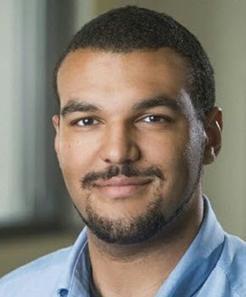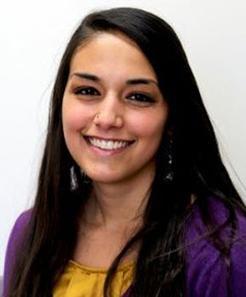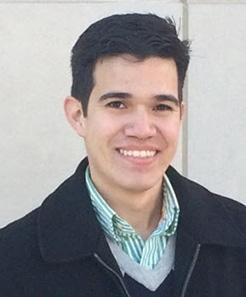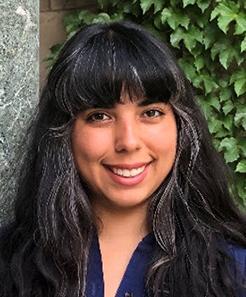Contact Email: lauren.ullrich@nih.gov
Location:
Monday, February 24, 2020
1:30 pm - 2:30 pm Eastern Standard Time
Learn about the NIH Blueprint D-SPAN F99/K00 transition award from successful applicants to these mechanisms. This webinar will take your through the process of putting together an application for the NIH Blueprint D-SPAN F99/K00 all the way from writing your application to anticipating and responding to reviewers comments. Hear from four D-SPAN awardees on how they crafted their applications; worked with their mentors; framed their research project; and wrote their career plan. This webinar is intended for potential applicants and mentors to the D-SPAN award.
Speakers:

Postdoctoral Research Fellow
McLean Hospital/Harvard Medical School
Nathaniel G. Harnett, Ph.D., is a postdoctoral fellow in the Neurobiology of Fear laboratory at McLean Hospital, led by Kerry J. Ressler, M.D., Ph.D. Dr. Harnett earned his Ph.D. in psychology at the University of Alabama at Birmingham under the mentorship of David C. Knight, Ph.D. Dr. Harnett’s research investigates the neural mechanisms that mediate susceptibility to trauma and stress-related disorders such as PTSD. To this end, Dr. Harnett leverages multimodal neuroimaging techniques with individuals recently exposed to trauma to elucidate neural circuitry linked to acute and long-term posttraumatic stress. Ultimately, the goal of his research is to develop predictive and preventative neuroscience-based techniques to reduce the prevalence of trauma and stress-related disorders.

Nadia Khan, PhD
Postdoctoral Fellow
Icahn School of Medicine at Mount Sinai
Nadia Khan received her PhD in Dr. Avtar Roopra's lab at the University of Wisconsin-Madison in May 2019. In her PhD, Nadia found one of the most developmentally conserved histone modifying enzymes, EZH2, increases after seizures. In addition, she found that inhibiting this enzyme causes epilepsy to become worse, suggesting that its role in the brain may be to protect against epileptic damage. Nadia decided to continue building on her knowledge in epilepsy by transitioning to Dr. Tristan's lab at the Icahn School of Medicine at Mount Sinai for her post-doc. There, she plans to gain skills in in vivo calcium imaging, circuit manipulation and animal behavior to understand how circuit and network based mechanisms drive diseases such as epilepsy. In the future, Nadia's goal is to pair her expertise in chromatin with her expertise in neuronal circuits from her post doc to investigate how molecular changes caused by trauma translate into changes in circuit function and the development of neurological disease.

Alberto Lopez, PhD
Postdoctoral Research Fellow
Vanderbilt University
Alberto Lopez graduated from Duke University in 2011 with a B.S. in Neuroscience. He worked for two years under Dr. Thomas Kash at UNC Chapel Hill studying the neural mechanisms behind anxiety and alcoholism. He began graduate school at UC Irvine in 2013 through the Interdepartmental Neuroscience Program (INP) and joined the Wood Lab later that year. In the Fall of 2018, Alberto will join the Calipari lab at Vanderbilt University as a D-SPAN post-doctoral fellow under Dr. Erin Calipari. Alberto’s research focuses on understanding the neural circuits that drive drug-seeking behavior. Specifically, he is interested in investigating the epigenetic mechanisms that are alter circuit function which, ultimately, underlie relapse behaviors.

Stephanie Noble, PhD
Postdoctoral Associate
Yale University School of Medicine
Stephanie Noble is a postdoctoral associate in Radiology and Biomedical Imaging at Yale where she is working on improving fMRI statistical methods and software. She is part of the state-of-the-art BioImage Suite Web software team co-led by her mentor, Dr. Dustin Scheinost (http://www.bioimagesuite.org). Before starting her postdoc, she completed her undergraduate in Chemical Engineering at Princeton, co-founded neuroscience startup goBlue Labs LLC, worked as a technical consultant at Source Signal Imaging (now part of Cortech Solutions), and completed her PhD in the Interdepartmental Neuroscience Program at Yale advised by Dr. Todd Constable. Her PhD work addressed open questions regarding reliability of functional connectivity and sensitivity of fMRI cluster-based inference and has been recognized by a number of awards, including the NSF GRFP and NIH DSPAN F99/K00. In addition to her research, Stephanie is passionate about elevating fellow Latinas and all URMs in STEM and about visual art.
Related Resources
Event Presentation(pdf, 2061 KB)
